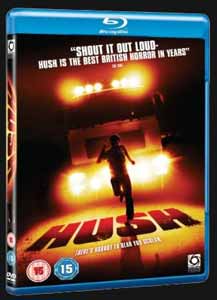|
Click here to return to the main site. Mark Tonderai (Writer / Director) - Hush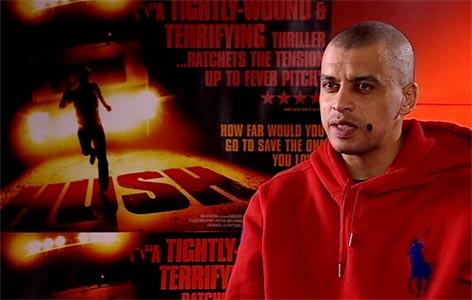 Mark Tonderai began his career in the media working as a writer, producer and presenter for radio, most notably on BBC Radio 1's Mark Tonderai Show, which aired between 1993 and 1998, and Weekending for BBC Radio 4. For TV he worked as writer, editor and director on ITV's Friday Night's All Wright as well as Sky One's Prickly Heat. In 1999 Tonderai wrote, directed and starred in the BBC 2 sketch show Uncut Funk. In 2002 he formed Shona Productions with partner Zoe Stewart and wrote and starred in his debut feature Dog Eat Dog. Darren Rea caught up with Tonderai as his latest movie Hush was released on Blu-ray and DVD... Darren Rea: You've had a pretty interesting career to date and you seem to be able to move quite easily between different areas of the media. Is this because you get itchy feet easily, or are you still trying to find where you're most comfortable?
DR: Of all the things you've done to date, which would you say you're most proud of. MT: It would have to be the film because of the budget and what we did with it and I think the fact that it sold tremendously well internationally - it was sold to 28 countries. It's a tight film and it works. There's that and I did a TV series called Uncut Funk for the BBC in 1999 and I'm really proud of that. They're the two things that I look at and and go... You know a lot of the sketches still work really well. So they're the two things. DR: Did you have any idea how popular it would be when you were making Hush?
So things like it selling well, people liking it and people arguing about it online - which is ridiculous, you know - are completely insane; because, like I said, the idea was to get a good film in the can that worked. So, you've got no idea at the time. I think that's an interesting question though because I was thinking about it today and when I did Uncut Funk there was a character called Comic book Guy and he was a sort of character that sold comics. I remember when we filmed it and no one laughed at all and I remember thinking that it was a really bad sketch. And the more we cut it together it was the funniest sketch I've ever done, it just worked so well. But you don't know - when you're doing things that are good - you just don't know. DR: In hindsight, knowing what a pain it was, would you still film it at night in the rain?
One of our standby prop master, a girl called Katie Lee, she said to me: "I know now that if I can do Hush I can do anything." I thing that's true because we were doing like 28 set-ups a day, which was ridiculous. There was one day where I split a unit into three different units and I was literally running between different cameras - it was the only way I could catch up. I learnt a lot. I learnt when you make a film it has to come from you - the buck stops with you. It was difficult, don't get me wrong, it really was the most difficult thing I've done, but these things make you stronger. After making it I though: "God, I really don't want to do that again. Is that what I've waited all my life to do?" But then as the dust settled, and then when you see it in front of an audience with people responding, you think: "This is the way to do it." You want to tell stories, that's what I want to do anyway and it's great to be allowed to do that, without sounding a bit melodramatic [laughs]. DR: Is there one thing that you wish you'd known from the start? One piece of advice that would have been helpful?
The thing is, I think, film is like acid. It's really corrosive. After a while on the set, day in day out in that pressure, you can't trust your instincts - you don't want to because you are so tired and that's what I realise now. You have to trust your instincts, do you know what I mean? I'm really big on it. I've been in interviews before... I was being interviewed and the guy's phone rang and it was the theme tune to Benny Hill and I knew then I wasn't going to work with him. Not because it was the Benny Hill theme tune, it could have been anything, it's just that a grown man shouldn't have ring tones [laughs] do you know what I mean? It's taught me a lot. These are the calls that you have to make when you're in this sort of game because you don't have time to really get inside someone's character. My big thing is that I think making a film is like going to war, I really believe that. I think you look around you and you sort of think to yourself who are the guys you want to go into the trenches with.
DR: Being a first time director, were you worried that some people would try to take advantage of that?
I'm not sort of sitting and pointing a finger at people, I'm just saying people are people. If they're away from their families and they haven't slept and they're tired and cranky and it's because of you, then you're going to be the butt of their vitriol. It's something you've got to take. And, again without sounding melodramatic about it, that's what leadership is - you've got to make calls and people don't like you. I realised that you can't be friends with everybody. It's about you wanting what you want on that screen. That really is the bottom line.
People like Danny Boyle, they may look like nice guys but underneath there is a hard man who knows exactly what he wants and he'll go for it and he doesn't care how he gets it. I didn't realise that when I first started, I do now though. DR: What happened to the naked woman in the back of the truck? And why was she naked?
And those girls at the end were one of our runner's mates and they were going to a party that night... or that morning... I can't remember what it was. We only had them for that afternoon. So we had to try and shoot around them. DR: What's next for you? MT: I'm doing this film with Pathé called The Twelfth Prophet that I'm trying to get right at the moment. "Trying" is the operative word, but hopefully that will be the next one, to shoot in New York. And hopefully that will be the one that gets the reach it deserves. DR: Thank you for your time.
Hush is released to buy on Blu-ray and DVD from Optimum Home Entertainment from 20 July 2009. Click here to buy Hush on Blu-ray for £13.98 (RRP: £24.99) Return to... |
|---|
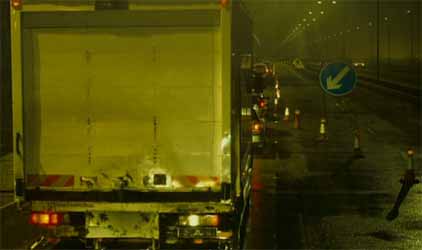 Mark Tonderai: For me it was a natural transition. I started off in radio and I probably learnt more about film in radio than I did anywhere else. Then I kind of graduated to TV, and then from TV to features. That was the path I was always going to do. I never did commercials or music videos, that wasn't really my kind of thing.
Mark Tonderai: For me it was a natural transition. I started off in radio and I probably learnt more about film in radio than I did anywhere else. Then I kind of graduated to TV, and then from TV to features. That was the path I was always going to do. I never did commercials or music videos, that wasn't really my kind of thing.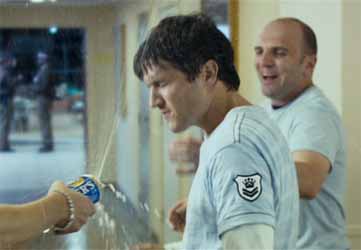 MT: No, I've been really surprised. Obviously you really want it to be successful, but the goal of your first feature is to make a solid feature so that you can get more money to make another one. Anything beyond that is a complete bonus.
MT: No, I've been really surprised. Obviously you really want it to be successful, but the goal of your first feature is to make a solid feature so that you can get more money to make another one. Anything beyond that is a complete bonus.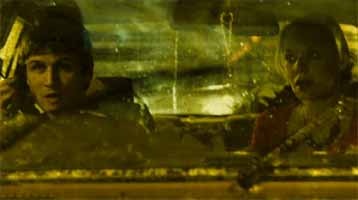 MT: Yeah, I probably would if I'm honest, because I think that really gave it a certain quality.
MT: Yeah, I probably would if I'm honest, because I think that really gave it a certain quality. 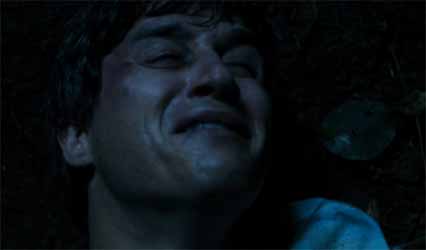 MT: I had a friend who was shooting a film called The Escapist and I asked him exactly the same thing and he said: "Listen Mark, trust your instincts. That's all you've got to do, trust your instincts". And I did at first when I was shooting the film, literally. And I if I felt someone was off or I felt the situation was off they've gotta go, you know?
MT: I had a friend who was shooting a film called The Escapist and I asked him exactly the same thing and he said: "Listen Mark, trust your instincts. That's all you've got to do, trust your instincts". And I did at first when I was shooting the film, literally. And I if I felt someone was off or I felt the situation was off they've gotta go, you know?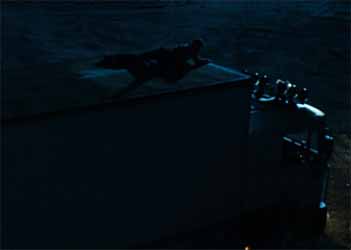 For me a good director is someone who makes really good decisions, that's what I think a director does, and he makes really good decisions, like in story twists. Like, for example, The Hangover. The story twists are so good - they never become puerile or alienated women. All the decisions they made, like the casting decisions in the film and ideas like starting the film at the end of the second act, are all really good calls. I think that's what you do as a director, you make good decisions, like if you hire someone who is really good at their job you don't have to tell them what to do, they just do it. The job has been done by you just making that call. I think that's something that you become better at and it's something that I really want to become adept at. Because then I think you get a better film.
For me a good director is someone who makes really good decisions, that's what I think a director does, and he makes really good decisions, like in story twists. Like, for example, The Hangover. The story twists are so good - they never become puerile or alienated women. All the decisions they made, like the casting decisions in the film and ideas like starting the film at the end of the second act, are all really good calls. I think that's what you do as a director, you make good decisions, like if you hire someone who is really good at their job you don't have to tell them what to do, they just do it. The job has been done by you just making that call. I think that's something that you become better at and it's something that I really want to become adept at. Because then I think you get a better film.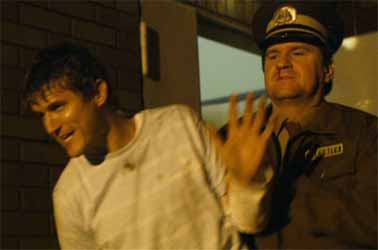 MT: Yeah, you know that there are going to be people that are going to be insidious and be there against you. I kind of knew that, but I didn't expect it to be as virulent as it was [laughs]. And that was because people were tired, to be frank. I don't think it was because they particularly hated me. People were tired, they were working six day weeks and hadn't got very much sleep and lack of sleep is a torture technique.
MT: Yeah, you know that there are going to be people that are going to be insidious and be there against you. I kind of knew that, but I didn't expect it to be as virulent as it was [laughs]. And that was because people were tired, to be frank. I don't think it was because they particularly hated me. People were tired, they were working six day weeks and hadn't got very much sleep and lack of sleep is a torture technique.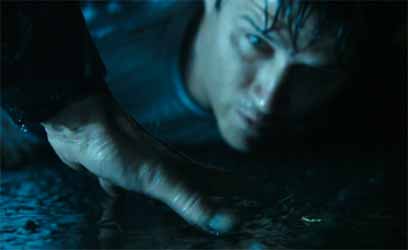 At the end of the day everyone else goes home after five weeks of shooting this film but you stay with it for another year or longer. And you've got to go to the people that gave you money and look them in the eye and tell them why you didn't get that shot that you said you were going to get. They were the things I had to get to grips with, because you want to be liked, you want to be a good bloke, but in a strange way the definition of being a director is being a dictatorship, in a way.
At the end of the day everyone else goes home after five weeks of shooting this film but you stay with it for another year or longer. And you've got to go to the people that gave you money and look them in the eye and tell them why you didn't get that shot that you said you were going to get. They were the things I had to get to grips with, because you want to be liked, you want to be a good bloke, but in a strange way the definition of being a director is being a dictatorship, in a way.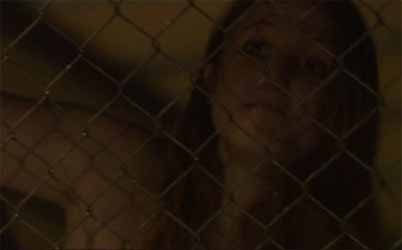 MT: That's a very good question. Money. We could only use her for one day and we couldn't get her back.
MT: That's a very good question. Money. We could only use her for one day and we couldn't get her back. 